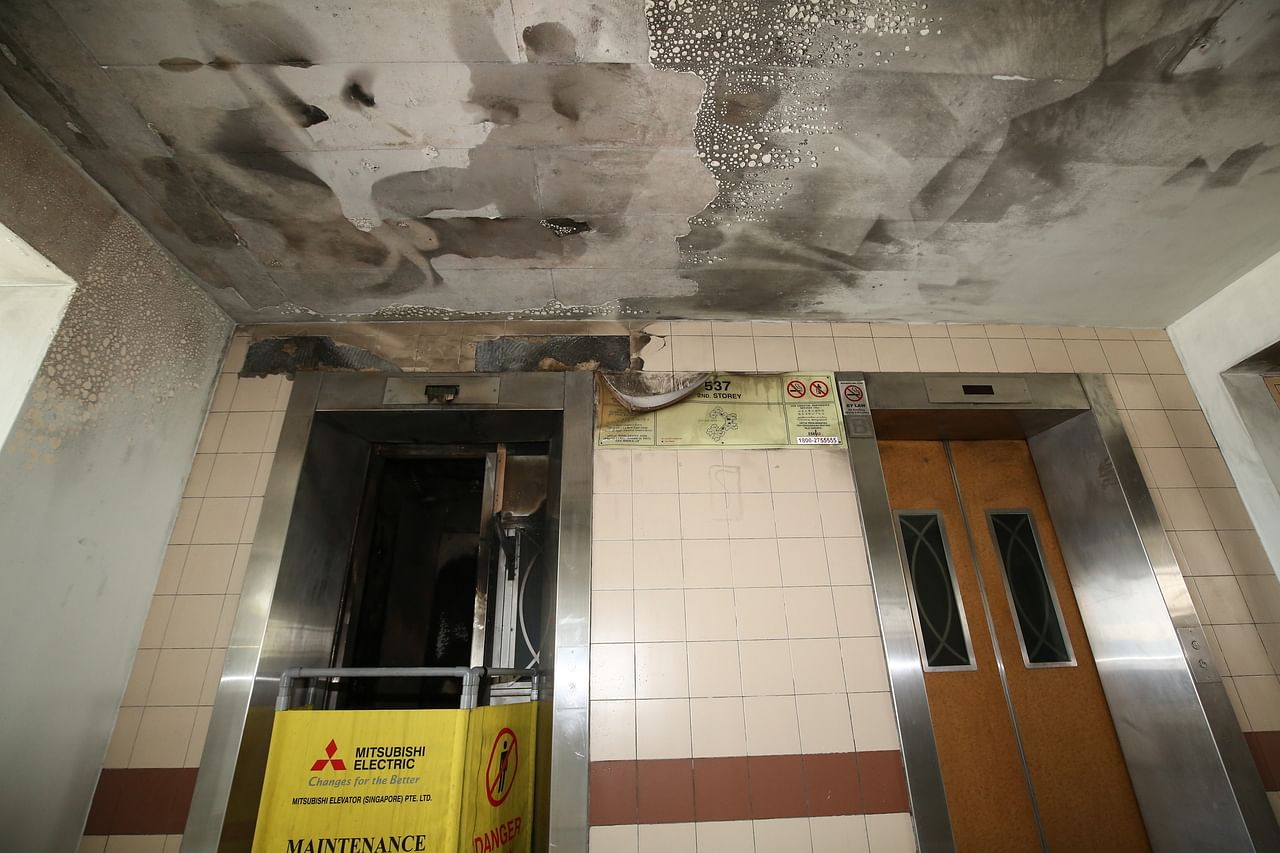PMD fires often the result of battery short circuits: Experts
Sign up now: Get ST's newsletters delivered to your inbox

The Singapore Civil Defence Force said preliminary investigations showed that the fire in the lift at Block 537 Woodlands Drive 16 was of electrical origin from the personal mobility device.
PHOTO: LIANHE ZAOBAO
SINGAPORE - Personal mobility devices (PMDs) that catch fire usually do so because of batteries that have short-circuited, said experts The Sunday Times spoke to.
Associate Professor Palani Balaya from the department of mechanical engineering at the National University of Singapore (NUS) told ST that using batteries from an unreliable source, overcharging PMDs, or using an incompatible charger are some reasons why lithium-ion batteries in PMDs can short-circuit.
Another issue is when PMDs do not meet safety standards, said experts.
There have been a significant number of fires related to non-compliant PMDs which do not have the compulsory UL2272 certificate. In 2019, there were 102 fires caused by non-compliant PMDs - almost double the 52 in 2018.
Last year, Mr Lam Pin Min, then Senior Minister of State for Transport, said it was worrying some people had started using non-compliant PMDs during the circuit breaker.
The Government banned electric scooters from footpaths in November 2019, following a spate of accidents related to PMDs.
Since the ban, the e-scooter population here has shrunk significantly, from a peak of about 100,000 in November 2019, to just 8,500 in March this year.
On Thursday's incident, Prof Palani said: "It was unfortunate this accident happened within the lift, because it is completely closed.
"The person... would have suffered from both burns and toxic gases that would have leaked from the battery."
He added that batteries in PMDs are often subject to vibrations which cause wear and tear. Separators within the battery, which prevent the positive and negative electrodes from touching, can be damaged, triggering short circuits.
Associate Professor Wang Qing from the department of materials science and engineering at NUS said it was rare for a PMD battery to catch fire while in a lift, as it would presumably be idle.
Prof Wang said: "Investigations should be conducted to understand the real cause - is it because of the battery itself or a malfunction of the PMD?"
Mr Chew Boon Hur, general manager of e-bike retailer Mobot, said certified PMDs rarely catch fire, since they go through extensive testing to ensure batteries and other components are safe.
He added: "Such incidents are rare because lithium-ion batteries (which power PMDs) are generally very safe - there are so many appliances which utilise them."
WARNING: VIEWER DISCRETION IS ADVISED
Mr Chew added that certified PMDs are fitted with a mechanism that shuts the PMD down once it senses the battery has been overheated. It is unclear whether the PMD which caught fire on Thursday had a UL2272 safety certification.
Mr Chew advised owners of non-certified PMDs to dispose of their devices while recycling services are still free.


